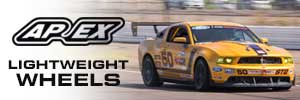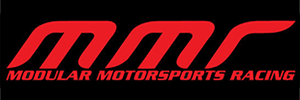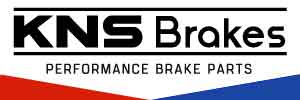four-walling
Kerry, San Diego
Other states will certainly follow California's lead.
http://www.latimes.com/politics/la-pol-ca-clean-vehicle-rebate-project-no-money-20160616-snap-story.html
California lawmakers unplug the state's electric car program
California’s electric-car rebate program, which has helped put thousands of Teslas, Nissan Leafs and Chevrolet Volts on the road, is running out of money.
In the state budget passed earlier this month, Gov. Jerry Brown and lawmakers eliminated $500 million originally proposed for the subsidy program and other low-emissions initiatives – the result of a political impasse.
Without the funds, the electric-car subsidy, which has helped Californians purchase 150,000 low- and zero-emission cars since 2009, has hit a roadblock. Thousands of consumers applying for the incentive each month now are pushed to a waiting list.
Unlike most budget cuts, the decision to slash funding isn’t due to a lack of money.
Instead, the decision springs from concerns over the long-term viability of the state’s cap-and-trade program, a major source of funding in California’s efforts to combat climate change.
Some environmental advocates are worried that behind-the-scenes political negotiations between Brown and legislative leaders have led the state to hold onto the money as an incentive for lawmakers to reach a deal later this summer on extending the cap-and-trade program, which is facing legal questions over whether it can keep operating past 2020.
“I think it’s ridiculous to play politics with kids’ lungs,” said Dean Florez, a former state senator and member of the California Air Resources Board, the agency that regulates greenhouse gas emissions.
The clean-car subsidies get their cash from auctions that are part of cap and trade.
The program functions by capping how much greenhouse gas can be emitted into the atmosphere and requiring oil refineries, manufactures and other companies to obtain permits, each allowing 1 metric ton of emissions. Those permits can be purchased at auctions or traded in a market, a system intended to provide a financial incentive to reduce emissions.
Although the latest auction of permits produced almost no revenue, the state had previously stockpiled $1.4 billion in the fund. Some of that cash is left over from last year, when the governor and lawmakers also were unable to reach an agreement on how to spend it.
"With the urgency of the climate crisis, we really shouldn’t delay in investing in projects that reduce emissions,” said Bill Magavern, policy director for the Coalition for Clean Air.
A Brown administration spokeswoman didn't directly address questions about the use of existing climate change dollars as leverage to extend the program. But the governor does want a new law to ensure cap and trade’s future.
“An extension will not only provide market certainty, but will ensure ongoing funding for clean-energy programs, especially in vulnerable communities,” Brown spokeswoman Deborah Hoffman said.
The clean-vehicle programs are essential to the state’s ambitious climate change goals. Air Resources Board Chairwoman Mary Nichols has said all internal combustion engine cars must be off the road by 2050 to meet Brown’s target of drastically reducing greenhouse gas emissions by that time.
Currently, 3% of cars sold in California are zero-emission models – the highest percentage of any state. Even so, Brown has lamented that the pace has lagged far behind the state’s needs.
In 2009, the state began subsidizing consumers who wanted to buy cleaner cars.
Currently, the state offers rebates of up to $6,500 toward the purchase or lease of new vehicles that run on electricity, plug-in hybrids and fuel cells. The 150,000 cars on the road subsidized by the program include 33,000 Chevrolet Volts and Sparks, 29,000 Nissan Leafs and 25,000 Tesla models.
More recently, the state added two incentives also funded by cap-and-trade dollars for low-income drivers in the San Joaquin Valley and Los Angeles to buy new and used clean cars.
Programs targeted to these residents are considered particularly important not only because they struggle to afford electric cars, but also because they’re often stuck behind the wheel of older, dirtier vehicles that cause more pollution.
Coupled with other state subsidies, low-income residents in those regions can receive as much as $13,500 for a new electric vehicle.
The program managed by the San Joaquin Valley Air Pollution Control District has taken hundreds of cars 20 years and older off the road in favor of electric vehicles and hybrids.
A few months ago, Gabriel Lua, 31-year-old mail carrier for a San Joaquin Valley school district, purchased a 2013 Chevrolet Volt to replace his 1987 Honda Civic. The Civic had been giving him exhaust headaches and made him worry about the health of his children, ages 3 and 5.
Even though the Civic had failed the state's smog test three times and was costing him hundreds of dollars a month in maintenance, Lua said he couldn’t afford to replace it until he learned about the incentive program. The state covered more than half the new car’s price tag.
“It saves me gas. It saves me money. I feel safer. And most important, it’s for my kids,” Lua said.
Seyed Sadredin, the executive director of the San Joaquin Valley Air Pollution Control District, said cars and heavy-duty trucks make up more than 65% of pollution in the valley. The clean car incentives are indispensable to meeting the region’s climate change goals and its requirements under the federal Clean Air Act, he said, but the district expects to drain the last of its $6.4 million for incentives within the next two months.
“That could be devastating to our efforts,” Sadredin said.
Any San Joaquin Valley residents applying for vehicle subsidies now get placed on a waiting list, as do those seeking similar dollars in Los Angeles.
Automobile industry representatives also are concerned about the funding problems.
Carmakers signed agreements with the state committing to the production of cleaner vehicles with the understanding that public dollars would go toward incentive programs, said John Bozzella, president and chief executive officer of Global Automakers, an umbrella group representing the U.S. divisions of 12 motor vehicle manufacturers.
“If you’re measuring based on the requirements in the [zero-emission vehicle] program, the numbers are very low,” Bozzella said. “And that would suggest to us that you need every tool in the toolbox.”
Earlier this year, officials were expecting a different plan.
In January, Brown proposed spending $500 million on low-carbon transportation programs in the coming year, including $230 million on the primary low-emission rebate program for consumers and $30 million to expand the programs targeted to low-income residents in the San Joaquin Valley and Los Angeles. The new dollars were supposed to get 100,000 additional clean cars on the road.
Even if Brown and lawmakers reach a deal, it’s unclear what the ultimate dollar amount might be. During budget negotiations earlier this month, a Brown administration finance official told a legislative committee that significantly lower than expected revenue from the most recent cap-and-trade auction contributed to the decision to hold back the cash.
But others, including Senate leader Kevin de León (D-Los Angeles), said the existing cap-and-trade money should be spent as soon as possible.
“Every time we don’t spend money, more carbon is emitted into the atmosphere,” De León said.
[email protected] and [email protected]
http://www.latimes.com/politics/la-pol-ca-clean-vehicle-rebate-project-no-money-20160616-snap-story.html
California lawmakers unplug the state's electric car program
California’s electric-car rebate program, which has helped put thousands of Teslas, Nissan Leafs and Chevrolet Volts on the road, is running out of money.
In the state budget passed earlier this month, Gov. Jerry Brown and lawmakers eliminated $500 million originally proposed for the subsidy program and other low-emissions initiatives – the result of a political impasse.
Without the funds, the electric-car subsidy, which has helped Californians purchase 150,000 low- and zero-emission cars since 2009, has hit a roadblock. Thousands of consumers applying for the incentive each month now are pushed to a waiting list.
Unlike most budget cuts, the decision to slash funding isn’t due to a lack of money.
Instead, the decision springs from concerns over the long-term viability of the state’s cap-and-trade program, a major source of funding in California’s efforts to combat climate change.
Some environmental advocates are worried that behind-the-scenes political negotiations between Brown and legislative leaders have led the state to hold onto the money as an incentive for lawmakers to reach a deal later this summer on extending the cap-and-trade program, which is facing legal questions over whether it can keep operating past 2020.
“I think it’s ridiculous to play politics with kids’ lungs,” said Dean Florez, a former state senator and member of the California Air Resources Board, the agency that regulates greenhouse gas emissions.
The clean-car subsidies get their cash from auctions that are part of cap and trade.
The program functions by capping how much greenhouse gas can be emitted into the atmosphere and requiring oil refineries, manufactures and other companies to obtain permits, each allowing 1 metric ton of emissions. Those permits can be purchased at auctions or traded in a market, a system intended to provide a financial incentive to reduce emissions.
Although the latest auction of permits produced almost no revenue, the state had previously stockpiled $1.4 billion in the fund. Some of that cash is left over from last year, when the governor and lawmakers also were unable to reach an agreement on how to spend it.
"With the urgency of the climate crisis, we really shouldn’t delay in investing in projects that reduce emissions,” said Bill Magavern, policy director for the Coalition for Clean Air.
A Brown administration spokeswoman didn't directly address questions about the use of existing climate change dollars as leverage to extend the program. But the governor does want a new law to ensure cap and trade’s future.
“An extension will not only provide market certainty, but will ensure ongoing funding for clean-energy programs, especially in vulnerable communities,” Brown spokeswoman Deborah Hoffman said.
The clean-vehicle programs are essential to the state’s ambitious climate change goals. Air Resources Board Chairwoman Mary Nichols has said all internal combustion engine cars must be off the road by 2050 to meet Brown’s target of drastically reducing greenhouse gas emissions by that time.
Currently, 3% of cars sold in California are zero-emission models – the highest percentage of any state. Even so, Brown has lamented that the pace has lagged far behind the state’s needs.
In 2009, the state began subsidizing consumers who wanted to buy cleaner cars.
Currently, the state offers rebates of up to $6,500 toward the purchase or lease of new vehicles that run on electricity, plug-in hybrids and fuel cells. The 150,000 cars on the road subsidized by the program include 33,000 Chevrolet Volts and Sparks, 29,000 Nissan Leafs and 25,000 Tesla models.
More recently, the state added two incentives also funded by cap-and-trade dollars for low-income drivers in the San Joaquin Valley and Los Angeles to buy new and used clean cars.
Programs targeted to these residents are considered particularly important not only because they struggle to afford electric cars, but also because they’re often stuck behind the wheel of older, dirtier vehicles that cause more pollution.
Coupled with other state subsidies, low-income residents in those regions can receive as much as $13,500 for a new electric vehicle.
The program managed by the San Joaquin Valley Air Pollution Control District has taken hundreds of cars 20 years and older off the road in favor of electric vehicles and hybrids.
A few months ago, Gabriel Lua, 31-year-old mail carrier for a San Joaquin Valley school district, purchased a 2013 Chevrolet Volt to replace his 1987 Honda Civic. The Civic had been giving him exhaust headaches and made him worry about the health of his children, ages 3 and 5.
Even though the Civic had failed the state's smog test three times and was costing him hundreds of dollars a month in maintenance, Lua said he couldn’t afford to replace it until he learned about the incentive program. The state covered more than half the new car’s price tag.
“It saves me gas. It saves me money. I feel safer. And most important, it’s for my kids,” Lua said.
Seyed Sadredin, the executive director of the San Joaquin Valley Air Pollution Control District, said cars and heavy-duty trucks make up more than 65% of pollution in the valley. The clean car incentives are indispensable to meeting the region’s climate change goals and its requirements under the federal Clean Air Act, he said, but the district expects to drain the last of its $6.4 million for incentives within the next two months.
“That could be devastating to our efforts,” Sadredin said.
Any San Joaquin Valley residents applying for vehicle subsidies now get placed on a waiting list, as do those seeking similar dollars in Los Angeles.
Automobile industry representatives also are concerned about the funding problems.
Carmakers signed agreements with the state committing to the production of cleaner vehicles with the understanding that public dollars would go toward incentive programs, said John Bozzella, president and chief executive officer of Global Automakers, an umbrella group representing the U.S. divisions of 12 motor vehicle manufacturers.
“If you’re measuring based on the requirements in the [zero-emission vehicle] program, the numbers are very low,” Bozzella said. “And that would suggest to us that you need every tool in the toolbox.”
Earlier this year, officials were expecting a different plan.
In January, Brown proposed spending $500 million on low-carbon transportation programs in the coming year, including $230 million on the primary low-emission rebate program for consumers and $30 million to expand the programs targeted to low-income residents in the San Joaquin Valley and Los Angeles. The new dollars were supposed to get 100,000 additional clean cars on the road.
Even if Brown and lawmakers reach a deal, it’s unclear what the ultimate dollar amount might be. During budget negotiations earlier this month, a Brown administration finance official told a legislative committee that significantly lower than expected revenue from the most recent cap-and-trade auction contributed to the decision to hold back the cash.
But others, including Senate leader Kevin de León (D-Los Angeles), said the existing cap-and-trade money should be spent as soon as possible.
“Every time we don’t spend money, more carbon is emitted into the atmosphere,” De León said.
[email protected] and [email protected]














